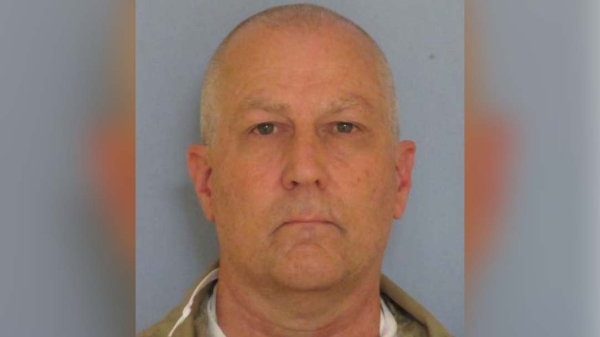By Bill Britt
Alabama Political Reporter
MONTGOMERY— An investigation of a major political scandal asks the same set of questions: “Who knew what and when.”
When considering the recent arrest, conviction and plea agreement of disgraced lawmaker, Greg Wren R-Montgomery, the questions to ask are, “Who knew about the plan to place language into the 2013 House General Fund Budget that guaranteed that American Pharmacy Cooperative Inc., (APCI) would become the sole provider for a Pharmacy Benefit Plan for the State’s then $600,000,000 Medicaid program and when did they know it?
While it may be impossible at this time to completely answer these questions, Wren’s Statement of Facts to the State’s Attorney General’s prosecutors can offer some evidence to ponder. Wren, in a sworn statement, said that he was present at meetings at which the monopoly wording was worked out for the benefit of APCI.
According to Wren, these were attended by Speaker Mike Hubbard, “other legislators, legislative staff, members of the Speaker’s staff, and lobbyists affiliated with Pharm Co-op.”
(It is important to note that Speaker Hubbard, through his business interests, had a consulting contract with APCI and that Wren had one with an affiliate, RxAlly)
Who were these other legislators, legislative staff, members of Hubbard’s staff and lobbyists affiliated with APCI?
Ferrell Patrick is a lobbyist affiliated with APCI. According to OpenBama, Patrick, has been a registered lobbyist for APCI, since 2012.
Patrick is not new to criminal investigations or shady deal making. In 2005, he was involved with Bill Blount in a business venture with Alabama Utility Services. The group become a part of a criminal investigation into possible wrong doing by the company. Blount was, sentenced to prison for his quid pro quo deal with Larry Langford. In exchange for clothes and cash, Blount received a piece of Jefferson County’s sewer deals.
Patrick was questioned by investigators, concerning Alabama Utility Services and Blount but walked away from without prosecution.
Patrick was also called before an FBI hearing in the lead-up to the infamous Bingo Trial, in which Ronnie Gilley and others plead guilty to buying votes for legislation favorable to gaming interests.
Given the fact that Patrick is listed as the sole lobbyist for APCI, it is reasonable to assume that he could be the “Lobbyist” that Wren said was present at meeting to plan the APCI monopoly scheme.
Bill Eley, who serves as Director of Legislative Affairs for APCI, was formerly the executive director of the Alabama Pharmacy Association. He is an individual who may have been categorized as a lobbyist in Wren’s Statement of Facts. Given his position with APCI it is easy to believe Eley would have known of the plan.
Wren’s statement says, “In or around February 2013, as a part of their efforts to influence legislation pertaining to a PBM for Medicaid, Pharm Co-op provided language (“Co-op Exclusive Language”) to Wren for inclusion in legislation.”
The language provided by APCI would most likely been handled by Patrick or Eley or at the very least been known by the pair.
Wren told investigators that he met with members of Speaker Mike Hubbard’s staff. The most likely member of Hubbard’s staff to be involved in these type of high-level meeting would have been Hubbard’s Chief of Staff Josh Blades. It is also reasonable to assume that Jason Isbell, who at the time served as legislative counsel for the House, would have been present during some of the meetings that Wren mentions.
As far as “other legislative staff,” that Wren said were involved in the meetings at which the exclusive language was discussed, Norris Green, Director of the Legislative Fiscal Office, (LFO) could have been someone who fit that description.
This could also include other staffers from the FLO as they are the ones who draft legislative budgets and related legislation. The 23 words giving APCI a monopoly over the State’s proposed Pharmacy Benefit Plan would likely have been vetted by LFO.
As for the “various legislators,” who attended meetings concern the granting of the monopoly to APCI, this becomes a more tricky and subjective matter.
During the 2013, Legislative session Rep. Steve Clouse, R-Ozark, served as acting Chair of the House Ways and Means General Fund committee. (Rep. Jim Barton was the Chair but was away from the session many days because he was running for a senate seat).
Clouse told the Alabama Political Reporter in June, 2013, that he did not recall speaking to Hubbard about the APCI exclusive language but did say that he thought that Wren had introduced the wording. Clouse is certainly a contender to be one of the “various legislators,” who was in on meeting about the APCI monopoly. That Clouse did not recall any conversation with Hubbard would seem to defy the very way that Hubbard runs the House. But for now, the statement stands.
The General Fund Budget, originated in the State Senate as SB143, it was approved by that body and sent to the House on March 12, 2013.
The language that would have granted APCI, its monopoly was not contained in the Senate version of the bill. On the same day SB143 was transmitted to the House and received its first reading, it was recommended to the House Ways and Means General Fund committee.
Republicans of interest who served on the committee were, Representatives Clouse, Wren, Wes Long and Chad Fincher. Fincher left the legislature to run for the U.S. congressional seat vacated by Jo Bonner. (Fincher did not make the primary for that race.) In November, 2013, Long announced he would not seek reelection to the legislature.
Wren in his Statement of Facts said, “the Speaker of the House endorsed the Co-op Exclusive Language and directed staff to add it to Medicaid’s section of the General Fund Budget.” It is reasonable to believe that the language benefiting APCI was added to the bill sometime between, March 12, 2013 and April 18, 2013 when the bill was in committee.
On April 23, 2013, SB143 passed the House and was sent to the Senate with the addition of the 23 words that would profit APCI added.
On May 2, 2013, the Senate voted to reject the House version of SB143, on a motion to non-concur introduced by Senate Budget Chair, Arthur Orr, R-Decatur.
The legislation was sent to conference committee to resolve the differences between the House and Senate versions of the bill.
Senate Republican members of the conference committee were, Senators, Orr and Del Marsh, R-Anniston, who is also President Pro Tem of the Senate.
Republican House members of the conference committee were, Representatives Barton and Clouse.
It would be reasonable to assume that these individuals at least became aware of the problems facing the language to benefit APCI, during this conference committee. It is also reasonable to think that Marsh’s Chief of Staff Phillip Bryan may have had knowledge of the 23 word addition.
During this period Dr. Don Williamson, the acting Medicaid Director, was working to have the APCI exclusive language removed from the bill. Williamson has confirmed on several occasions that APCI was the only company that fit the criteria for the wording added to the General Fund Budget in the House. And he has in other statements said that he and Gov. Bentley wanted to study the issue before committing to any provider.
According to sources close to the discussion at the time, Bentley was furious over the proposal to give Hubbard’s client APCI a monopoly over the lucrative Medicaid contract.
Individuals who spoke on the grounds that they not be identified said, that the language was not stricken from the budget until the Governor threatened to publicly expose Hubbard.
While is it impossible to say with 100 percent accuracy who knew what and when, the statements made by Wren to the prosecutors leaves the door of speculation wide open.





















































